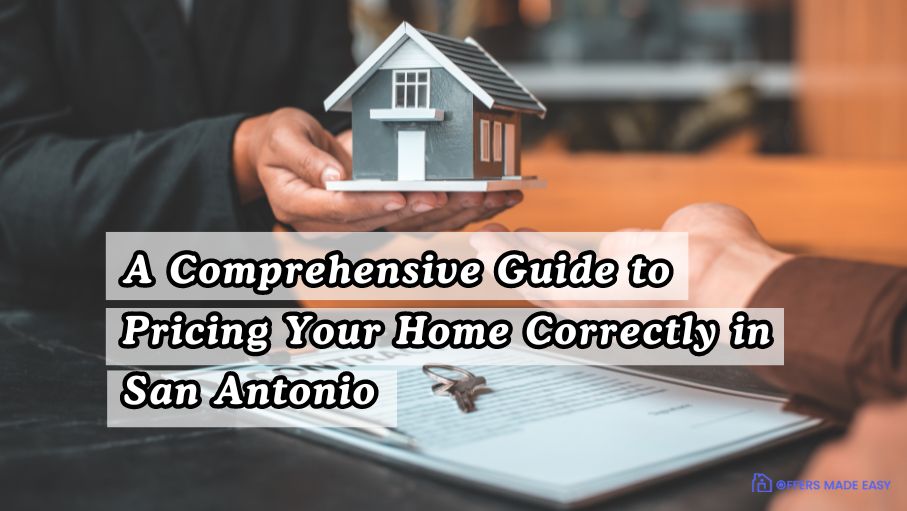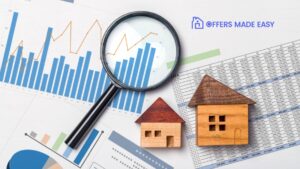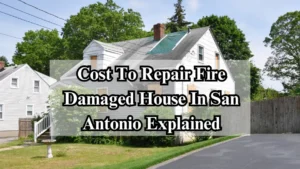When it comes to selling your home in San Antonio, one of the most important decisions you’ll make is setting the right price. Price it too high, and you risk scaring away potential buyers; price it too low, and you might leave money on the table. In San Antonio’s competitive real estate market, understanding how to price your home correctly can make all the difference between a quick sale and a drawn-out process. Let’s dive into the essentials of pricing your home to ensure you get the best value.
Understanding the Basics of Home Pricing
The Importance of Accurate Pricing
Accurate pricing is crucial for attracting potential buyers. A well-priced home generates interest, leading to more showings and potentially multiple offers. On the flip side, overpricing can lead to extended time on the market, which can create a perception that something is wrong with the property. Ultimately, the goal is to maximize your return on investment while ensuring a smooth sale process.
Key Factors Influencing Home Prices
Location, Location, Location: The San Antonio Advantage
In real estate, location is king. San Antonio boasts diverse neighborhoods, each with its unique charm and amenities. Factors such as proximity to schools, parks, shopping, and public transportation can significantly influence your home’s value. Researching the desirability of your neighborhood is essential for setting a competitive price.
Home Size and Layout: What Buyers Are Looking For
The size and layout of your home play a pivotal role in its pricing. Buyers often look for specific features, such as the number of bedrooms and bathrooms, open floor plans, and outdoor spaces. Understanding what buyers in your area prioritize can help you position your home effectively in the market.
Condition and Upgrades: Enhancing Value
The condition of your home and any upgrades you’ve made can also impact its value. A well-maintained home with modern upgrades will generally command a higher price than a similar home that needs repairs. Consider investing in minor renovations or repairs before listing your home; they can yield a significant return.
Researching the San Antonio Housing Market
Analyzing Current Market Trends
To price your home correctly, it’s essential to understand the current market trends in San Antonio. Are homes selling quickly, or is the market slowing down? Familiarize yourself with the dynamics of supply and demand, as these factors directly affect pricing. Seasonal trends can also play a role; for instance, spring and summer often see more buyers in the market.
Utilizing Comparable Sales (Comps)
What Are Comps and Why Do They Matter?
Comparable sales, or “comps,” are properties similar to yours that have recently sold in your area. Analyzing these sales provides valuable insights into what buyers are willing to pay. Comps help you gauge the market and set a realistic price for your home.
How to Find and Analyze Comparable Properties
To find comps, you can use online real estate platforms, consult your real estate agent, or look at recent sales data from local listings. When analyzing comps, consider factors such as location, size, condition, and features. This analysis will help you determine a competitive price range for your home.
Adjusting for Differences: Size, Features, and Condition
No two homes are identical, so it’s important to adjust your pricing based on differences between your home and the comps. If your home has more square footage, updated appliances, or a better location, you may be able to price it higher. Conversely, if it lacks certain features or requires repairs, you may need to adjust your price downward.
Setting the Right Price for Your Home
Competitive Pricing vs. Strategic Overpricing
When setting your price, you can choose between competitive pricing and strategic overpricing. Competitive pricing involves setting a price similar to recent sales, while strategic overpricing might involve listing slightly higher to leave room for negotiation. However, be cautious with overpricing; it can deter buyers and lead to a stale listing.
The Role of Psychological Pricing
Psychological pricing can also play a role in how buyers perceive your home. For example, pricing your home at $299,000 instead of $300,000 can create the impression of a better deal. Understanding buyer psychology can help you set a price that attracts interest.
Understanding the Price Range for Your Neighborhood
Knowing the typical price range for homes in your neighborhood is essential. This range can vary significantly based on location, amenities, and market conditions. Researching local listings can give you a clearer picture of where your home fits within that range.
Tools and Resources for Home Pricing
Online Valuation Tools: Pros and Cons
There are several online tools available to help estimate your home’s value. While these can provide a starting point, they often lack the nuance of local market conditions and may not consider the unique features of your home. Use them as a guide, but don’t rely solely on their estimates.
Hiring a Professional Appraiser: When and Why
For a more accurate assessment, consider hiring a professional appraiser. An appraiser will provide a detailed analysis of your home’s value based on various factors, including recent sales and market trends. This can be especially helpful if you’re unsure about your home’s worth.
Working with a Real Estate Agent: Their Role in Pricing
A knowledgeable real estate agent can be your best ally in pricing your home. They have access to market data, understand local trends, and can help you analyze comps effectively. An experienced agent will work with you to develop a pricing strategy that aligns with your goals.
Preparing Your Home for Sale
Enhancing Curb Appeal
First impressions matter, and enhancing your home’s curb appeal can make a significant difference in attracting buyers. Simple upgrades like fresh landscaping, a new front door, or a clean driveway can create a welcoming atmosphere that draws in potential buyers.
Staging Your Home for Success
The Benefits of Home Staging
Staging your home can help buyers visualize themselves living there. A well-staged home often sells faster and for a higher price. Consider hiring a professional stager or using your own furnishings to create an inviting space.
DIY Staging Tips to Showcase Your Home’s Best Features
If you prefer a DIY approach, focus on decluttering, depersonalizing, and rearranging furniture to highlight your home’s best features. Use neutral colors and good lighting to create an appealing environment that allows buyers to see the potential in your space.
Marketing Your Home Effectively
Crafting an Attractive Listing
An attractive listing can make all the difference in generating interest. Write a compelling description that highlights your home’s best features and unique selling points. Use descriptive language that evokes emotion and helps buyers envision their lives in your home.
Professional Photography: Why It’s Worth It
High-quality photos are essential for online listings. Consider hiring a professional photographer to capture your home in the best light. Great images can significantly enhance your listing and attract more potential buyers.
Navigating Offers and Negotiations
Understanding Buyer Psychology
To effectively navigate offers, it’s important to understand buyer psychology. Buyers often look for value, so pricing your home competitively can create a sense of urgency. Knowing what motivates buyers can help you respond to offers strategically.
Handling Offers and Counteroffers
When you receive offers, evaluate them carefully. Look beyond the price to consider contingencies, closing timelines, and buyer qualifications. Be prepared to negotiate; a counteroffer can help you reach a mutually beneficial agreement.
Common Pricing Pitfalls to Avoid
Overpricing Your Home
One of the most common mistakes sellers make is overpricing their homes. This can lead to fewer showings, longer time on the market, and ultimately, a lower sale price. Be realistic about your home’s value and avoid the temptation to list too high.
Underpricing Your Home
On the other hand, underpricing can also be detrimental. While you may want a quick sale, a low listing price can lead to missed opportunities and lost profits. Ensure your pricing strategy reflects the true value of your home.
Conclusion
Pricing your home correctly is a critical step in the selling process. By understanding the San Antonio housing market, researching comparable sales, and utilizing the right tools and strategies, you can set a price that attracts buyers and maximizes your return. Embrace the journey of selling your home with confidence, knowing that you’re equipped with the knowledge to make informed decisions. With the right approach, you’ll be well on your way to a successful sale in San Antonio!
FAQ-
What are the top factors influencing home prices in San Antonio?
The top factors influencing home prices in San Antonio include the location of the property, local economic conditions, community development projects, and the overall supply and demand dynamics in the housing market.
How do interest rates impact home pricing in San Antonio?
Interest rates impact home pricing in San Antonio by affecting buyer affordability and financing costs. Lower interest rates generally increase buyer purchasing power, driving up demand and prices, while higher rates can cool demand and stabilize or reduce prices.
What are the current trends in the San Antonio real estate market?
Current trends in the San Antonio real estate market include steady growth in demand, rising property prices, and a notable expansion into suburban areas as buyers seek more affordable housing options.
How do property taxes affect home pricing in San Antonio?
Property taxes affect home pricing by influencing the overall cost of homeownership. Higher property taxes can reduce buyer affordability and demand, while areas with lower property taxes may attract more buyers and drive up prices.
What are the most sought-after amenities in San Antonio homes?
The most sought-after amenities in San Antonio homes include outdoor spaces like patios and pools, modern and spacious kitchens, energy-efficient features, dedicated home office spaces, and smart home technology.
Call to action
- Call Now:(210) 685-7355
- Micahdufner@Gmail.Com
fill out the form on this website today! >>
We’ll evaluate your house, make you a fair all-cash offer, and you can decide if selling your house to us is the best fit for you. We’re here for you, just reach out and lets chat.










